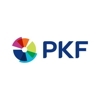Group demand continued to grow in 2014, and 2015 will be another strong year. For a fourth straight year, PKF Hospitality Research (PKF-HR), a CBRE Company, has observed an increase in the number of events organized by meeting planners in 2014.

Each year, PKF-HR asks meeting planners to answer questions about the events they are organizing as part of a survey sponsored by ConventionSouth magazine. In October of 2014 a total 95 meeting planners provided insights regarding their events. Although the meeting planners surveyed are located throughout the U.S., the survey questions were primarily focused on the southeast region of the country. Their experiences during 2014, as well as their expectations for the future, are highlighted in the following paragraphs.
Increasing Expenditures
While increases in the number of meetings and attendance are great news for hoteliers, even more welcome is the fact the meeting planner budgets appear to be on the rise. Fifty-five percent of the meeting planners reported an increase in meeting expenditures from 2013 to 2014.
The primary reason cited for these increased expenditures was the increasing cost to conduct a meeting (64 percent of planners), as opposed to their organization investing in more meetings (20 percent). The greatest increases in expenditures were identified for food and beverage (39 percent), programming (47 percent) and guest rooms (37 percent).
Going forward, 71 percent of meeting planners believe it will be more expensive to conduct their meetings in 2015 than it was in 2014. Forty 40 percent of planners say providing their attendees with a great meeting experience that doesn’t exceed their budget is their biggest challenge.
Struggle to Control Costs
Unfortunately for the meeting planners, strong lodging industry fundamentals have swung the pendulum of negotiating leverage towards hotel management. PKF-HR forecasts occupancies in excess of 70 percent through 2018 in the chain-scales that most groups desire. Accordingly, luxury, upper-upscale and upscale hotel managers have become more aggressive with regards to group room rates and less willing to offer discounts and concessions for other group meeting services.
Only 25 percent of the planners in our survey reported that hoteliers were more willing to concede room rates in 2014 than they were in 2013. Hotel managers were not flexible with food and beverage prices either, with only nine percent of planners stating that hoteliers were more willing to make concessions for food and beverages. Conversely, 59 percent of planners reported a greater incidence of concessions for internet access.
Fewer Rooms, Higher Rates
With high occupancy levels being realized by hotels in many U.S. cities, an increasing number of planners are finding it more difficult to book rooms at their preferred hotels. Twenty-one percent of planners stated that it is more difficult to find available rooms for their attendees in 2015 than it was in 2014, which was nearly double the 11 percent reported in last year’s survey. In addition, 51 percent of respondents believe that the majority of hotel room rates are too high.
The increased difficulty in finding available, and affordable, hotel rooms has led meeting planners to become more flexible as to the location of their meetings. The percentage of meeting planners that held meetings within first-tier destinations decreased from 50 percent in 2013 to 39 percent in 2014. Conversely, the percentage that held meetings at second-tier destinations increased from 39 percent to 49 percent.
Meeting planners are also finding the need to book their rooms farther in advance of their events. Twenty-six percent of the 2014 survey participants see their booking windows getting longer, as compared to only 19 percent in last year’s survey.
Bright Future
Meeting planners, in general, continue to have a positive outlook about the future of the meetings industry. Similar to last year’s survey, 93 percent of planners expect the health of the meetings industry in the next eighteen months to be as good as, or better, than it is today. For hotel managers, the increased demand for rooms from meeting planners should result in continued high occupancy levels, rising group room rates, and increasing revenues from other meeting services.
Robert Mandelbaum and Gary McDade work in the Atlanta office of PKF Hospitality Research, a CBRE company (www.pkfc.com). Special thanks to Marlane Bundock, Managing Editor of ConventionSouth, for sponsoring the survey.